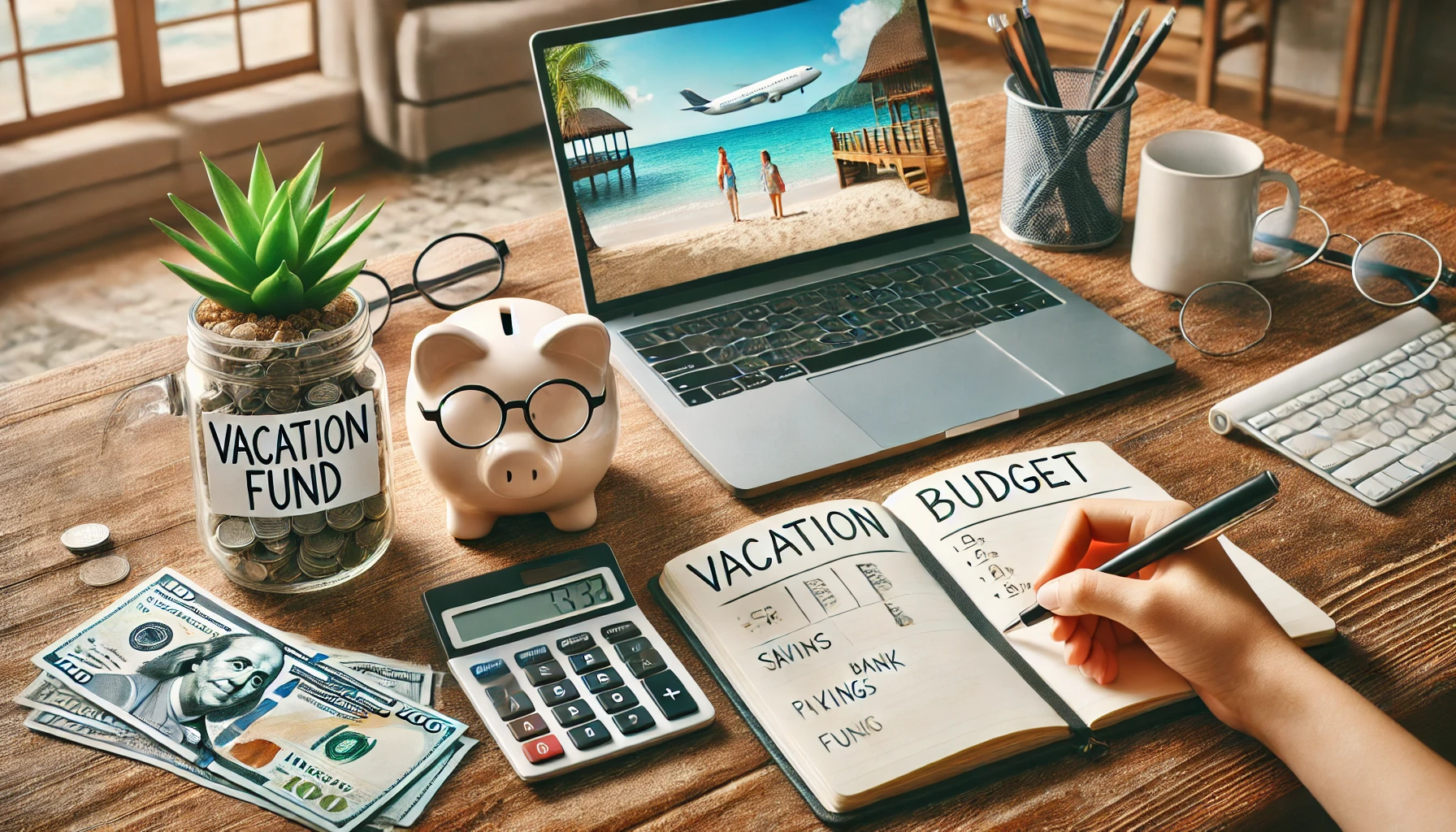Introduction
Taking a vacation doesn’t have to mean draining your savings or going into debt. With proper planning and budgeting, you can enjoy a stress-free trip without financial regret. This guide will help you save money, find the best deals, and travel within your budget while making the most of your vacation experience.
By following these expert tips, you can explore new destinations affordably and without financial worry. Start planning today and make your dream trip a reality!
1. Set a Vacation Budget
Before you start planning, determine how much you can realistically afford to spend. A clear budget will keep your travel expenses in check and prevent overspending.
- Consider all costs: Flights, accommodation, food, activities, transportation, travel insurance, and souvenirs.
- Break down expenses: Allocate a set amount for each category to avoid unexpected costs.
- Use a savings-first approach: Plan a trip based on what you can save, not what you can borrow.
- Leave room for unexpected expenses: Always set aside extra funds for emergencies or surprises.
2. Choose an Affordable Destination
Your travel costs will vary significantly depending on your chosen destination. Selecting a budget-friendly location helps maximize your experience without overspending.
- Opt for destinations where your money stretches further. Southeast Asia, Eastern Europe, and South America offer incredible experiences at lower costs.
- Travel off-season: Avoid peak travel times to save on flights and accommodations.
- Consider domestic travel: Road trips and local getaways can be just as fulfilling without international expenses.
- Look for travel deals: Research budget-friendly destinations with discounts on lodging and activities.
3. Create a Vacation Savings Plan
Saving in advance is the best way to fund your trip without financial stress.
- Open a dedicated vacation savings account. Keeping travel funds separate prevents you from spending them elsewhere.
- Set up automatic transfers: Contribute a fixed amount from each paycheck.
- Use cashback and rewards programs: Apps like Rakuten, Honey, and Fetch Rewards help you earn extra money for your trip.
- Leverage travel points and miles: Earn free flights and hotel stays by using travel rewards credit cards.
4. Cut Expenses to Boost Your Vacation Fund
Finding extra savings before your trip can help you reach your travel goal faster.
- Reduce eating out and entertainment expenses. Cook at home and opt for free entertainment.
- Cancel unused subscriptions. Temporarily pause streaming services and memberships.
- Sell unused items. Declutter and make extra cash by selling items you no longer need.
- Take on a side hustle. Freelancing, tutoring, or gig work can generate extra income for your trip.
5. Find the Best Deals on Flights and Hotels
Flight and accommodation costs can be significantly reduced with smart booking strategies.
- Use flight comparison websites: Google Flights, Skyscanner, and Kayak help find the best prices.
- Set price alerts: Track flight prices and book when rates drop.
- Consider alternative airports: Flying into a nearby airport may be cheaper.
- Look for budget-friendly accommodations: Compare hotels, hostels, Airbnb, and guesthouses.
- Join hotel loyalty programs: Earn free stays and discounts on future trips.
6. Plan Activities Within Your Budget
Experiencing a new place doesn’t have to break the bank.
- Look for free or low-cost attractions. Many cities offer free museums, parks, and walking tours.
- Book activities in advance. Online deals and group discounts can help save money.
- Prioritize what matters most. Spend money on experiences that provide the best value.
7. Use Public Transportation or Walk
Save money by choosing cost-effective ways to get around.
- Use buses, trains, or ride-sharing services. Avoid expensive car rentals and taxis.
- Walk or rent a bike. This is not only budget-friendly but also a great way to explore a city.
- Purchase transportation passes. Many cities offer multi-day transit passes that reduce costs.
8. Be Smart About Food Expenses
Food costs can add up quickly, but you can still enjoy local cuisine on a budget.
- Grocery shop and cook some meals. Choose accommodations with a kitchen to save on dining out.
- Try local street food. This is often cheaper and more authentic than restaurants.
- Look for hotels with free breakfast. Complimentary meals help reduce daily food expenses.
- Eat where locals eat. Avoid tourist-heavy areas where prices are inflated.
9. Use a Travel Rewards Credit Card Wisely
If used responsibly, travel credit cards can help save money on flights and hotels.
- Earn points on everyday purchases. Redeem them for flights, hotels, and rental cars.
- Take advantage of sign-up bonuses. Many travel cards offer generous welcome offers.
- Avoid carrying a balance. Pay off your card in full each month to prevent interest charges.
10. Stick to Your Budget While Traveling
Avoid overspending once you’re on vacation by staying disciplined.
- Withdraw a set amount of cash for daily expenses. This prevents impulse purchases.
- Track spending using budgeting apps. Apps like Trail Wallet and TravelSpend help monitor expenses.
- Avoid unnecessary shopping. Focus on experiences rather than souvenirs.
- Set a daily spending limit. This helps control expenses without feeling restricted.
Final Thoughts: Enjoy Your Vacation Without Financial Stress
A well-planned trip lets you enjoy your vacation without worrying about money. By saving in advance, finding great deals, and sticking to a budget, you can travel stress-free and debt-free.
Start planning today and make your dream vacation a reality—without financial worries holding you back!
